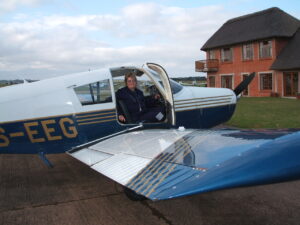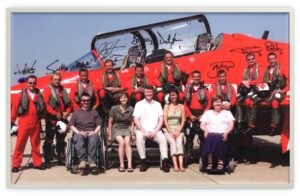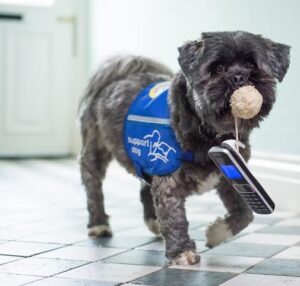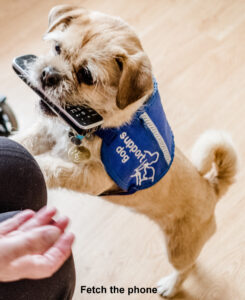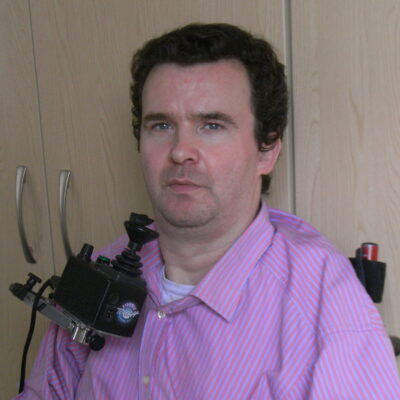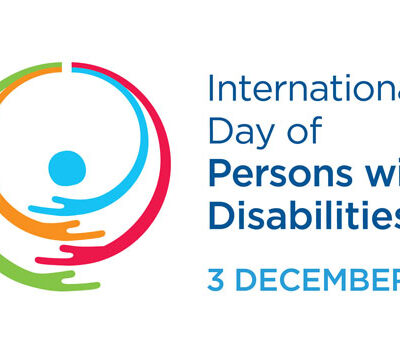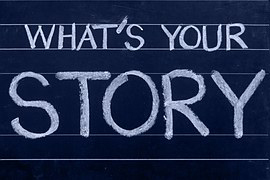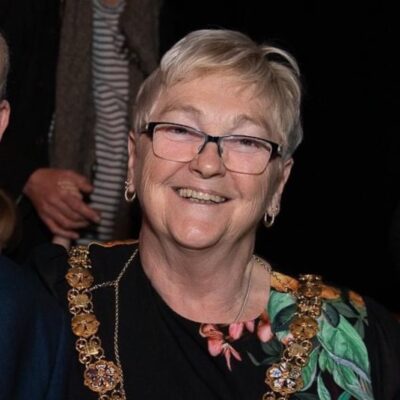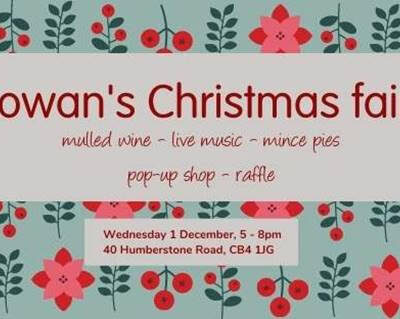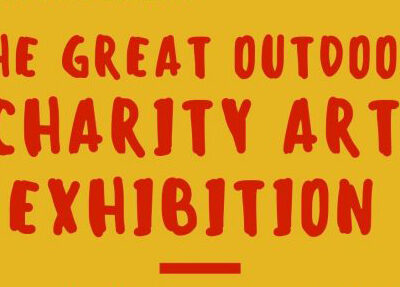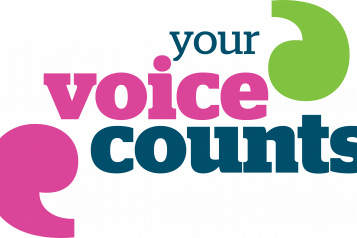Search by topic
- archaeology
- architecture
- bricklayer
- Building of Local Interest
- carpenter
- church
- crime
- dressmaker
- fire
- Great Eastern Railway
- listed building
- medieval
- oral history
- Public House
- Rattee & Kett
- Religious House
- Roman
- scholar
- school
- Then and Now
- tudor
- women
- work
- world war one
- world war two
Search by text
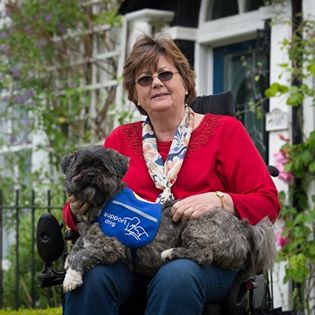
So much more than ‘the lady in the wheelchair’
My story: regaining my independence by sharing my lived experience of disability by Judith Margolis
Chair of Disability Cambridgeshire
Most people in my local community know me – if not by name, by my description – I’m ‘the lady in the wheelchair’ and perhaps they would have met my little dogs Alfie and Fudge.
It wasn’t always that way, after leaving school at 16 without even a CSE, years later I became addicted to learning. Achieving first a BA, then MBA and a teaching qualification, I worked hard and achieved a good academic career with the Open University Business School.
However, in 2004, although still on my feet, I was struggling health wise, I told myself two bouts of breast cancer must have taken their toll, but I was fighting back, and things could only get better – couldn’t they? But then the falls started – I began to have double vision, my speech started to slur, and I had to fight desperately not to fall asleep in the car on the way home from work. It became impossible for me to keep up with my busy life. I missed deadlines at work, seeing my friends and was too tired to spend time with my family.
When I complained to my GP he sent me for tests – we all expected the worst, that the cancer had come back, and we held our breath until the results came through. No big ‘C’ this time, and after three years of tests it was a relief to be diagnosed with a rare, slowly progressive, neurological condition called cerebellar ataxia.
Throughout this time there were difficult periods, having to retire early and give up the professional career that I had fought so hard to get; giving up travelling and not being trusted to be alone with my new grandson in case I fell, or even worse dropped him! It was very difficult watching my family trying to cope with yet another one of my illnesses – this time there was no cure, and the certainty that my condition would only get worse.
There were dark times admittedly, but the only person who suffers in those times is me… I know that I have the power to choose how I feel, so I chose to focus on the positives rather than negatives.
There are so many good things that have happened to me as a result of my disability.
My electric wheelchair
The best is my wheelchair, I know it sounds funny, but it was so hard to cope before, I was so poorly, tired and dizzy all the time, but once I sat down, life became much easier.
People ask me if I mind being in a wheelchair and I always say: “It was the best thing that happened to me.” The chair has given me back the freedom to enjoy life again, admittedly it was hard, going to work the first time in a wheelchair, but I just got a ‘Harley Davidson’ motorbike sticker for the back and laughed a lot with my colleagues who soon forgot about it. The only trouble with being in a wheelchair is that you become invisible. People don’t want to talk to you, and even if you are out with someone else – they talk to them. We call it the ‘does she take sugar’ syndrome. People will ask the person I am with questions about me – even though I am sitting right there!
My Motability car
On advice from one of my OU colleagues, I applied for Disability Living Allowance which included money for a car. Together with my Blue Badge the car allowed me to travel again and gave me my physical independence back. Today I have a car that has an automatic ramp and is adapted so that I can drive from my wheelchair.
Learning how to fly
The next best thing was that I got to learn how to fly an aeroplane! I won a flying scholarship for disabled people in 2006 and went to air-school in South Africa for six weeks, it was brilliant. The first time I went up, I was terrified, and the butterflies were having a party in my stomach. However, after 40 hours of flying time, I conquered the butterflies. They were still there but now they were flying in sync. The scholarships are part sponsored by the Red Arrow team and I was lucky enough to meet them a couple of years later.
My dogs
When I finally stopped working, I found it was very difficult to have the motivation to go out, even getting dressed was too much trouble some days, so much so that I could spend a week without going outside the house. Eventually I decided that I wanted to get a dog. Having a dog meant I would have to get up and dressed and I would have to go out every day.
Rescuing Alfie so he could rescue me back
We went to the local animal shelter and found a little 13-week-old Lhasa Apso puppy that had been abandoned outside the gates in the middle of the night. We had experience of the breed, and knew how strong willed they were, but I thought it would give me the motivation I needed to start living again.
He made an immediate impact – just going out and getting fresh air every day made a huge difference to my well-being and going out with a puppy meant that I began talking to lots of people and making new friends. Eventually I discovered the charity, Support Dogs, and they helped turn him into an assistance dog.
They specialise in training dogs owned by people with disabilities and they took Alfie to doggy boarding school for four weeks when he was two years old. We had to practice for a nearly a year before we graduated, but we got there eventually.
Alfie changed my life – he enabled me to gain my emotional independence. He gave me the confidence to meet people again and started me off on my volunteering career.
My husband was always worried about leaving me at home on my own in case I fell. Alfie was trained alongside all the other fetching and carrying tasks, to bring me the telephone if I fell, so I could call for help if needed. That meant I could be safe when I was alone in the house and he could go out without worrying.
Retirement for Alfie, but a new helper in Fudge
Eventually sadly poor Alfie’s eyesight failed. It was heart-breaking, but we had to make the decision to retire him early and he became my pet dog. It was the hardest thing to do – we both had to learn to be separated from each other. I had to learn how to handle being invisible again, (people are always reluctant to talk to me when I am out on my own), and he hated being left at home.
The good news is that the charity found me a lively replacement. Fudge is another rescue dog, a cross between a Pug and Border Terrier. He is totally different than calm and stoic Alfie. He is excited to work and does everything that Alfie did and more. He loves to sit and cuddle and is even trained to put his own toys away!
Fudge has been a godsend during lockdown. Just like before, I spend a lot of time indoors and if it wasn’t for him, I would rarely go out. But, like Alfie, I must get up and dressed to take him for a walk. I find even if it’s just waving hello at people on the other side of the road, it makes me feel grounded, and being out in nature uplifts my spirit.
The privilege of choosing how I want to spend my time
I think retirement has given me a rare privilege, to choose how I spend my time. I can keep very busy, finding volunteering opportunities which combine my love of teaching with my lived experience of disability.
When I first started looking around for something to do, I volunteered for Disability Information Service Huntingdon (DISH) – an information help line for people with disabilities.
With Alfie by my side, my work at DISH allowed me to use all my hard learned experiences to help others who were going through the same things. They made me feel valued again and introduced me to Disability Cambridgeshire.
For the last few years, I have been Chair of Disability Cambridgeshire
My mission is to help people find the information they need to make their own choices and take control over the way they want to live.
I really enjoyed going to the Disability Cambridgeshire office each week and relished getting dressed up in my work clothes again. As well as the advice line, we have three caseworkers who help people with their welfare benefit applications and appeals; and a volunteering program helping people gain much needed workplace skills.
We have a 95% success rate for our appeal work, that is compared to the national average of 65%. Although going into the office is not possible now, I am still working from home, answering the phones, supporting our caseworkers, and writing funding bids.
In my ‘spare time’ I work for the Huntingdon and District branch of the MS Society as their lead support volunteer, answering their advice line and helping with welfare claims. Multiple sclerosis has very similar symptoms to cerebellar ataxia and I find that I can understand the problems our members face.
Discovering the Social Model of Disability
Whilst I was at DISH I learnt about the Social Model of Disability. This way of looking at life supports the idea that it is our surroundings and the way we are treated that ‘disable’ us rather than the conditions of our body.
I struggle with the term ‘disabled’; just because I use an electric wheelchair, doesn’t mean I am any less of value than anyone else. I’m still the same optimistic person who likes a challenge and enjoys helping people reach their full potential.
When I first learned about the Social Model of Disability, it made me very angry. Why hadn’t someone told me about this before? It changed my whole outlook on life, and the way I expected to be treated.
Apart from the ‘does she take sugar’ attitudes of people, the list of everyday things that ‘disable’ me are endless, for example: I have to call up 24 hours in advance if I want to use our local buses, and my local train station has no lifts to the platforms. I can’t use most of the London Underground stations and taxis are a nightmare. I can’t get into most pubs, hotels, shops and restaurants where I live, and I can’t visit people in their homes or go to parties, and why do people always store furniture in accessible toilets?
For so long after I had to retire from work, I felt helpless, vulnerable -and yes, disabled – but not now. It took me a good few year to get my life back and the social model was the last piece of the puzzle.
Even with the pandemic I am optimistic for the future. This situation has just proved how resilient we are, and how lucky we are to be able to help each other get through these difficult times.
I AM Cambridge: Inclusion and Access in Cambridge
Cambridge Disability Heritage: Gathering, sharing, celebrating, campaigning and archiving experiences of inclusion and accessibility in Cambridge. Raising awareness to bring about change through stories, memories, history and the arts.
Please email Ariadne, Community Development Officer at Cambridge City Council to contribute ariadne.henry@cambridge.gov.uk
Join the conversation on our Cambridge Disability Heritage facebook page:
#IamCambridge #camdisabilityheritage
Contribute
Do you have any information about the people or places in this article? If so, then please let us know using the Contact page or by emailing capturingcambridge@
License
This work is licensed under CC BY-NC-SA 4.0








